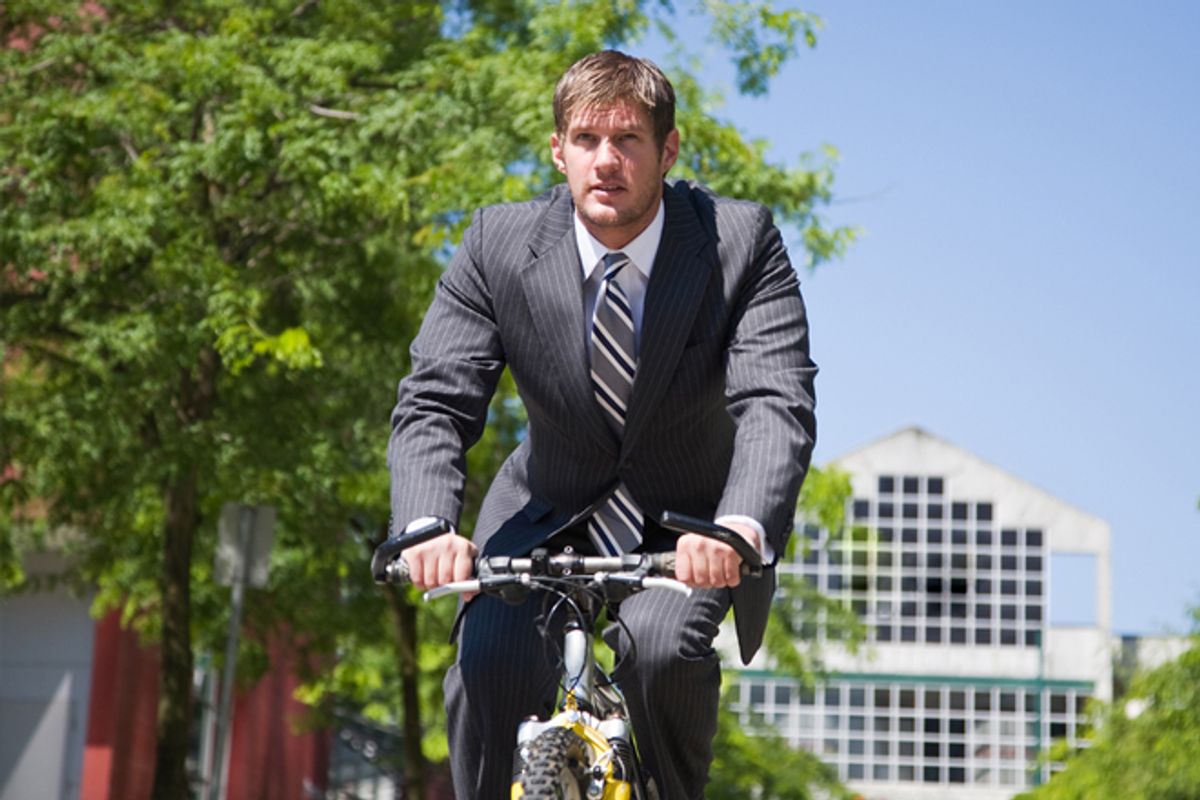There hasn't been much good news involving male athletes in the past few weeks, but thankfully medical research is offering a quick break from the drama. Male cyclists, rejoice: Riding a bike for hours on end is not correlated with a higher risk of erectile or sexual dysfunction. According to Dr. David Samadi, a urologist and oncologist at Lenox Hill Hospital in New York, research shows that men who spent more time on their bicycles did not show a higher incidence of ED. But, as Samadi writes for Live Science, they did show a greater risk of cancer:
The research, published in the Journal of Men's Health, surveyed more than 5,200 male cyclists between 2012 and 2013. Researchers asked the men to report how many hours per week they spent biking and any experience with erectile dysfunction (ED) or a physician's diagnosis of infertility or prostate cancer. The researchers analyzed the data in relation to the men's cycling time, in categories ranging from less than 3.75 hours per week to more than 8.5 hours per week.
The results showed that men who logged more time on their bikes didn't suffer a higher incidence of ED or infertility than less-frequent cyclists. So the findings should thankfully put to rest the most common fears expressed by my cyclist patients, who know well how a narrow bike seat can press on and enclose sensitive areas.
But the surprising finding is that men who bike the most were much more likely to have been diagnosed with prostate cancer than the other men. Just less than 1 percent of all the men in the study reported the cancer diagnosis, while 3.5 percent of the most-frequent cyclists said they'd had prostate cancer. Among the least-frequent bikers, that proportion was only 0.5 percent.
The findings do not, as it might seem, indicate that cycling causes prostate cancer, which would obviously be a bad thing. In fact, it's quite the opposite; cycling could just be drawing more attention to the existence of prostate cancer, which is great for men who need treatment. "The pressure cycling places on the prostate gland through its contact with the perineum raises blood levels of prostate-specific antigen (PSA), an enzyme released by the prostate that's found in higher concentrations among men with prostate cancer," Samadi writes. "So it seems likely that the higher PSA levels among male cyclists are spurring greater detection of prostate cancer."
As with most studies, Samadi urges that more research is needed. But, for the time being, it seems that cycling might not be so bad for sexual health -- and it could save men's lives.

Shares